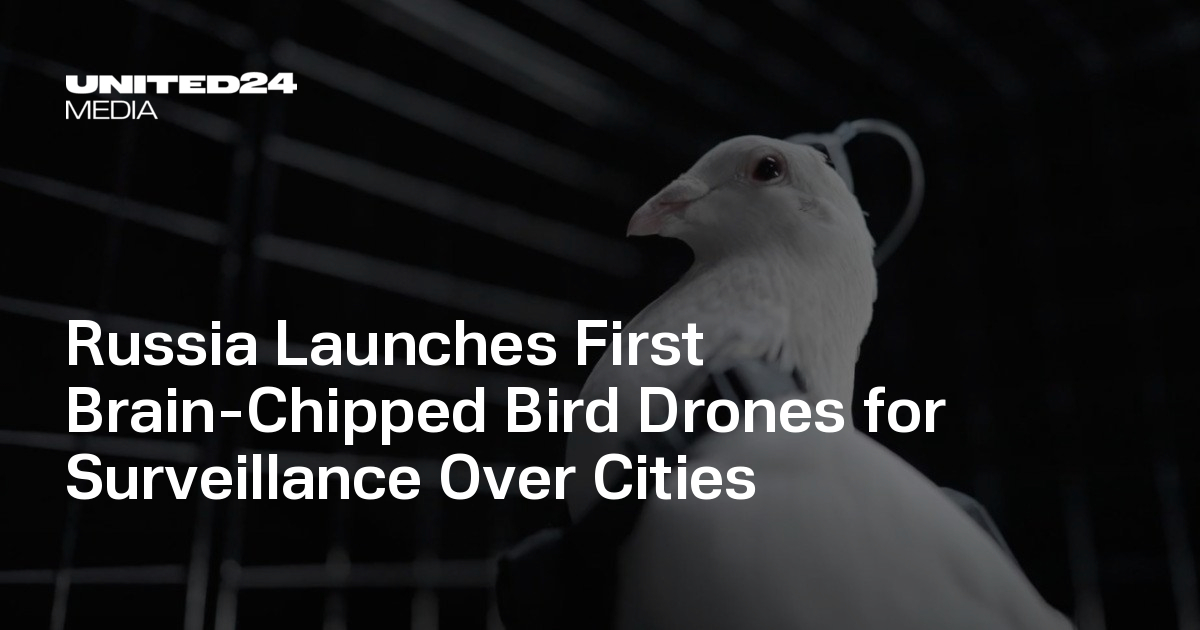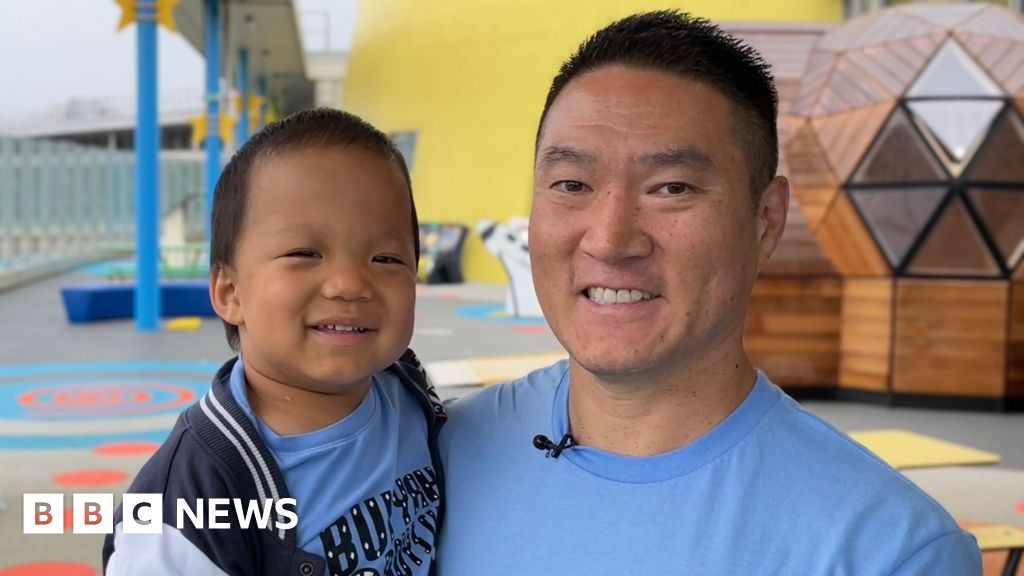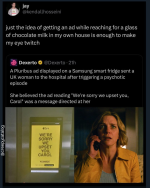You are using an out of date browser. It may not display this or other websites correctly.
You should upgrade or use an alternative browser.
You should upgrade or use an alternative browser.
Cyberpunk, var igår … framtiden är redan här! (…eller?)
- Thread starter Quadrante
- Start date
"It’s hard for young tech workers to find a job, even with the AI buildout bonanza. This has spawned a curious worldview that fears AI is coming for our jobs and a drive to be at the top of the AI food chain. This, tech writer Jasmine Sun believes, is revealed in the emerging dialect of Silicon Valley tech workers.
Today on the show, San Francisco slang. Jasmine Sun takes us on a tour of high-agency 996ers and NPCs to see what it could mean for our present and our future."
Today on the show, San Francisco slang. Jasmine Sun takes us on a tour of high-agency 996ers and NPCs to see what it could mean for our present and our future."
Hittade poddens transkript:"It’s hard for young tech workers to find a job, even with the AI buildout bonanza. This has spawned a curious worldview that fears AI is coming for our jobs and a drive to be at the top of the AI food chain. This, tech writer Jasmine Sun believes, is revealed in the emerging dialect of Silicon Valley tech workers.
Today on the show, San Francisco slang. Jasmine Sun takes us on a tour of high-agency 996ers and NPCs to see what it could mean for our present and our future."
"DARIAN WOODS: There is a paradox going on in Silicon Valley right now. There is this absolute fire hose of cash pouring into the AI buildout from companies like Amazon and Microsoft. But at the same time, young tech workers are finding it hard to land a job. Jasmine Sun is a tech writer who's been following this trend. She used to work for Substack and various tech companies. And one thing she's observed is a new dialect among tech workers in San Francisco that reveals a dog-eat-dog mindset.
JASMINE SUN: If the world is going to split into the techno kings and the techno peasants, I better prove that I'm going to stay on top because I am high-agency enough. I have the taste. I am 9-9-6-ing hard enough that I'm going to make it.
WOODS: High-agency? 9-9-6-ing? What do these terms mean? Jasmine's essay on the way Bay Area developers talk went viral recently, not just as a curiosity, but because many of these workers believe what they're experiencing could be a preview to what's coming for the rest of us. This is The Indicator from Planet Money. I'm Darian Woods. Today on the show, San Fran slang-- we comb through the jargon, the argot, and the etymology of Silicon Valley in the AI era and what it says about our present and our future.
WOODS: Jasmine Sun calls her writing about the Bay Area tech community an "anthropology of disruption." And to set the scene, I asked her where she actually did her anthropological observations. She said Twitter/X, of course, but also house parties and spas.
SUN: Shortly before writing the piece, I was in Archimedes Banya, which is the Russian sauna on the outskirts of San Francisco. There are a lot of, like, I guess, old Russian guys in there, but there's-- it's also become a bit of a tech hotspot for tech workers to go to decompress, to socialize. And so I was there with probably 9 or 10 20-something investors, founders, like AI people. It's clothing-optional. So it's kind of an interesting vibe, and 80% male.
WOODS: OK.
SUN: And they kind of just sit around and talk about AI.
WOODS: Wow, that's quite an image.
SUN: Yeah.
[LAUGHTER]
WOODS: So among all this, we're hearing a new language emerge. These terms themselves could be an indicator of the economic climate in Silicon Valley right now. So shall we dissect a few of them?
SUN: Let's do it.
WOODS: First of all, high-agency-- What does this one mean?
SUN: High-agency is a fun one. I'm hearing it everywhere these days. I think a person is high-agency if they have a lot of personal initiative. They're very resourceful. And they're really good at getting what they want and not even thinking about what roadblocks might be in the way. I think it also has an element of contrarianism in it. It's high-agency to be able to define your goals for yourself, to not listen to what other people say is the default path or the good job, to not sort of put your resume in this dropbox with 1,000 other applications and competing. But actually, it's very high-agency instead to show up to the office with a box of the CTO's favorite chocolates or something like that. That is what it means to be high-agency is, like, I'm going to figure out a creative way to get what I want from the world.
WOODS: It's interesting because we're reaching a world where intelligence is almost becoming commodified with artificial intelligence. And so this is something that chatbots don't really have, which is the drive to do something.
SUN: Right.
WOODS: Next term, NPC-- tell me what NPC means.
SUN: An NPC is a Non-Player Character. It's a term that the world of video games. An NPC is the opposite of being high-agency. It's somebody who has no grand missions of their own. They can't really deviate from the script they're given. They just are background characters. You are automatable, is essentially what you're saying. You can be coded. You can be automated by a game designer. You don't have goals or ideas or creativity of your own.
WOODS: Yeah, that's pretty brutal, almost like you don't have a soul.
SUN: That is basically what people are saying. I think it's pretty mean to call people NPCs.
WOODS: [LAUGHS]
SUN: Like, I think in the essay, I joke that the NPCs are stuck playing LinkedIn games and watching Marvel movies, totally blind to the technological tsunami that's going to come for them.
WOODS: Which brings us to the next term, permanent underclass.
SUN: Permanent underclass is a crazy one. It is just so bleak. So there are all these tweets that I saw joking about the permanent underclass. And they usually went something along the lines of like, we only have five months to escape the permanent underclass. Like, you better work hard because you're going to get stuck in the permanent underclass. This guy, Nick Carter, on Twitter said, "Everyone I know believes we have a few years maximum until the value of labor totally collapses and capital accretes to owners on a runaway loop. This is the permanent underclass thing, and everyone I know subscribes to it." And so, if that's true, then you are in a world where capital is the only thing that matters. like, if you can pay more money, you can basically run more instances of AI. You can sort of rent labor that is perfectly replicable. And so all of these jokes, they are really jokes about the permanent underclass, but they sort of reflect this, I think, economic anxiety that people don't know whether their skills are going to survive what they think of as AGI.
WOODS: And can you explain AGI?
SUN: AGI stands for Artificial General Intelligence. And it's the notion of an AI that is-- can do any cognitive task that a human can, is the definition. You think that AI will get to a point where there is nothing intellectual or cognitive that it cannot do. So excluding robotics and sort of, like, physical tasks, but any level of coding, any level of economics research, any level of illustration or creative-- coming up with ideas for articles and stories like AI will be able to do.
WOODS: So this foreboding of a potential permanent underclass leads us to our next term, 9-9-6.
SUN: Yeah, 9-9-6 stands for 9:00 AM to 9:00 PM, six days a week. It's a work culture where the idea is that you are working those hours, 9:00 AM to 9:00 PM, six days a week.
WOODS: That doesn't sound healthy.
SUN: No, it doesn't. It's a lot. It's a lot. It's funny because Silicon Valley used to-- there was a time where people were playing ping-pong at work and--
WOODS: Sure.
SUN: --advertising work-life balance and remote work. But no, everyone's back to the office, and they're adding Saturdays, too. 9-9-6 is interesting because it came from China and Chinese big tech companies that mandated a 9-9-6 schedule during the 2010s, until so many employees started experiencing health problems and going to the ICU that the government instituted policies to formally ban 9-9-6. But it continues in informal ways. And San Francisco, this year, has, I suppose, decided that if they want to compete with the Chinese tech companies, they, too, should adopt this work practice.
WOODS: So to recap, we have people being described as either high-agency or opposite, NPC, which might or might not affect whether they end up in the permanent underclass. And some of the ways to avoid that are by working 9-9-6 hours. What does this discourse tell you about the hopes and fears of tech people in San Francisco and Silicon Valley right now?
SUN: I think there's a lot of interesting dissonance going on where people do believe that there will be inequality that's created by AGI, that there will be some people who are the automators and some people who are the automated. But rather than this leading to any sort of, you know, political consciousness or interest in activism or slowing down, I think the way that tech culture is reacting is by everybody working as hard as they can to prove that they are going to end up on top of that divide.
WOODS: I think that this is super important because when you take a step back, you'll notice that a whole lot of behaviors in the corporate world are following what other people are doing. I think back to when Elon Musk cut thousands of staff at X, or Twitter back then, and then suddenly all the other tech companies were doing the same thing. And a lot of it just seemed to be following what other people were doing. And so if this is the language and the culture and the narratives being built up, it might explain some of the trends we're seeing around hyper-scaling of AI data centers and the ways that people are choosing to forge their careers and the companies they found.
SUN: Yeah, I totally agree with that. It is funny how much people are trying to prove that they're not an NPC by all going to the same parties and the same various classes and drinking the same Celsiuses. And so there is a bit of irony in that, I think.
WOODS: Well, Jasmine Sun, independent writer, thank you so much for joining The Indicator."
Vimes
Byns okrönte sillkung
- Joined
- 15 Jun 2000
- Messages
- 14,445
Kanske redan finns med i tråden, men gamification av krig: https://www.politico.eu/article/ukr...-like-digital-weapons-store-deadly-realistic/
Det finns fjärrstyrda pansrade sjuktransporter att köpa nu. Operatören kör över slagfältet till den sårade soldaten, som klättrar ombord och stänger locket om sig i något som liknar en pansarlikkista. Sedan kör man tebax honom. Jag är osäker på hur mycket autonom förmåga maskinen har.

 www.cbsnews.com
www.cbsnews.com

Robot rescues Ukrainian soldier trapped 33 days behind Russian lines, navigating minefields and mortar strikes
After seven attempts, Ukrainian forces managed to extract a wounded comrade from Russian-occupied ground with a drone resembling an armored off-road casket.
"All of the toys also weighed in on other topics that parents might prefer to talk with their kids about first before the AI toy does," the report says. "Those topics included religion, along with sex and the glory of dying in battle in Norse Mythology."

 www.theregister.com
www.theregister.com

AI-enabled toys teach kids about matches, knives, kink
: Consumer advocacy researchers at PIRG tested four AI toys, and none of them passed muster

AI:s utsläpp - Så mycket kostar en kattvideo klimatet - Fabriken - UR
Lanseringen av Sora 2 och vår ökade användning av AI lämnar avtryck på klimatet.
Cybot
Mest spelbar
Fast det är ju så folk snackar. Med en massa uttryck som är jobbrelaterade o låter konstiga för andra, allmänna modeord, social slang och liknande. Det skulle ju vara mer konstigt om de talade som man gjorde under den tiden som boken skrevs.
Quadrante
Grisbonde
Tveksamt innehåll, men användbart i spel.
Rymdhamster
ɹǝʇsɯɐɥpɯʎɹ
Jag är glad att jag åt lunch INNAN jag såg den där, för jag kommer att ha svårt att äta kyckling på ett tag tror jag =D
Kul grund för bodyhorror alla ExistenZ och Virus dock! Och servitors från WH40K så klart!
Kul grund för bodyhorror alla ExistenZ och Virus dock! Och servitors från WH40K så klart!
Quadrante
Grisbonde
Kul grund för bodyhorror alla ExistenZ och Virus dock! Och servitors från WH40K så klart!
Ja, det är som sagt inte på riktigt… men passar tråden ändå tänkte jag.
Quadrante
Grisbonde
Bygga i rymden.

 www.ted.com
www.ted.com

How to build in space for life on Earth
Is space the “final frontier” — or the perfect place to revolutionize life on Earth? Space architect Ariel Ekblaw reveals how self-assembling structures could build orbiting real estate in space dedicated to solving humanity’s greatest dilemmas on Earth, leading to scientific and medical...
Doktor Laser
Warrior
- Joined
- 9 Feb 2015
- Messages
- 324
Nu förväntar jag mig högst tvivelaktigt resultat (för att inte säga sanningsgrund) p.g.a. Lex Ryssland, men om det här inte är cyberpunk så vet jag inte vad som är det...

 united24media.com
united24media.com

Russia Launches First Brain-Chipped Bird Drones for Surveillance Over Cities
Russian company Neiry has tested pigeons as biodrones in Moscow, using neural implants and electronics to enhance their flight capabilities for various monitoring tasks.
Tryggve
Skapar liv
- Joined
- 29 Jun 2011
- Messages
- 91
Ytterligare en sjukdom har behandlats med genterapi. Hunters syndrom. Verkligheten är närmare cyberpunk. När jag började plugga molekylärbiologi 1997 så talade man mycket om genterapi, men det tog tid att komma så långt.
"A three-year-old boy has astounded doctors with his progress after becoming the first person in the world with his devastating disease to receive a ground-breaking gene therapy.
Oliver Chu has a rare, inherited condition called Hunter syndrome - or MPSII - which causes progressive damage to the body and brain.
In the most severe cases, patients with the disease usually die before the age of 20. The effects are sometimes described as a type of childhood dementia.
Due to a faulty gene, before the treatment Oliver was unable to produce an enzyme crucial for keeping cells healthy.
In a world first, medical staff in Manchester have tried to halt the disease by altering Oliver's cells using gene therapy.
Prof Simon Jones, who is co-leading the trial tells the BBC: "I've been waiting 20 years to see a boy like Ollie doing as well as he is, and it's just so exciting"

 www.bbc.com
www.bbc.com
"A three-year-old boy has astounded doctors with his progress after becoming the first person in the world with his devastating disease to receive a ground-breaking gene therapy.
Oliver Chu has a rare, inherited condition called Hunter syndrome - or MPSII - which causes progressive damage to the body and brain.
In the most severe cases, patients with the disease usually die before the age of 20. The effects are sometimes described as a type of childhood dementia.
Due to a faulty gene, before the treatment Oliver was unable to produce an enzyme crucial for keeping cells healthy.
In a world first, medical staff in Manchester have tried to halt the disease by altering Oliver's cells using gene therapy.
Prof Simon Jones, who is co-leading the trial tells the BBC: "I've been waiting 20 years to see a boy like Ollie doing as well as he is, and it's just so exciting"

Hunter syndrome: Boy with rare condition amazes doctors after world-first gene therapy
Oliver has an inherited condition called Hunter syndrome, which causes progressive damage to the body and brain.
Alltså varför...

 lineuropeclinic.com
lineuropeclinic.com

RGB Smart Breast Implants: The Next Era of Implant Technology! | LIN
Discover how RGB smart breast implants work, what makes them innovative, and how they improve safety and monitoring. Explore next-generation implant technology at Lin Europe Clinic in Istanbul.
 lineuropeclinic.com
lineuropeclinic.com
Som de illustrerar artikeln får mig att tänka på den här videon:Alltså varför...

RGB Smart Breast Implants: The Next Era of Implant Technology! | LIN
Discover how RGB smart breast implants work, what makes them innovative, and how they improve safety and monitoring. Explore next-generation implant technology at Lin Europe Clinic in Istanbul.lineuropeclinic.com
LEBs- Cyberpunk Wearable Fiber Optic Implant Transillumination
Eller vänta, de har faktiskt använt stillbilder av Naomi Wu från videon ovan för att illustrera artikel! Och jag ser ingen kreddande av henne i den
Last edited:



